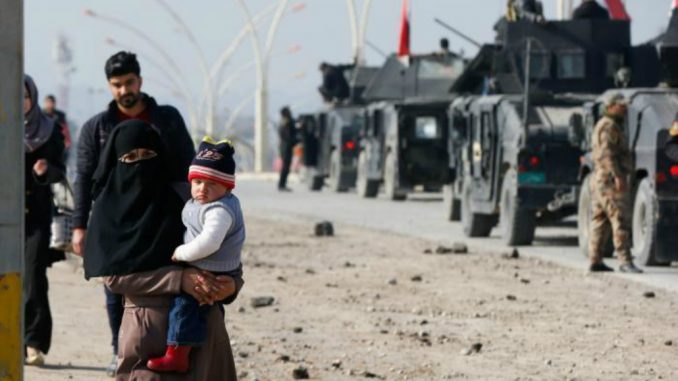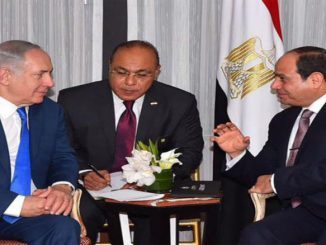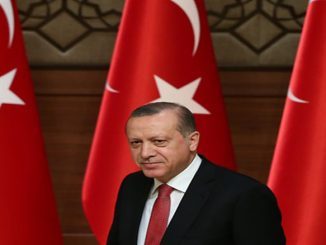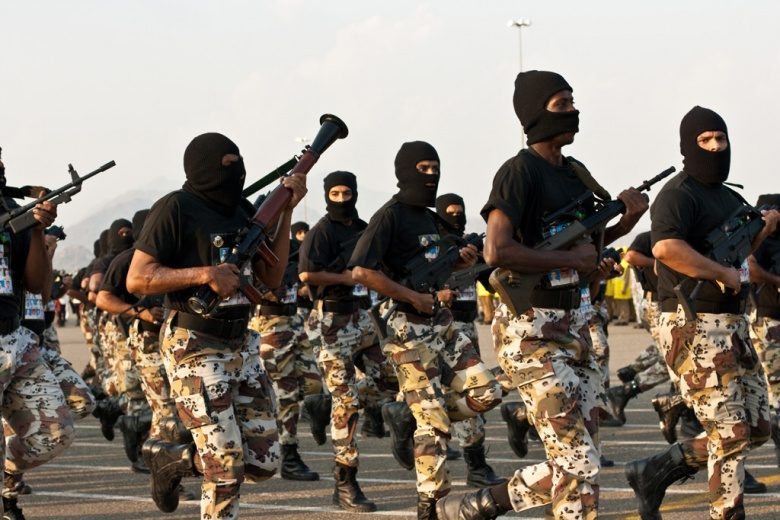
As the advancing Iraqi forces are heading towards western Mosul after retrieving the east side of the city, ISIS militants blew up a landmark hotel in western Mosul on Friday to prevent Iraqi forces from using it as a base in their offensive.
The Mosul Hotel, shaped as a stepped pyramid, appeared to be leaning to one side after the explosions, two witnesses said by phone. They requested anonymity, saying the militants killed those they caught communicating with the outside world.
The Mosul Hotel stands close to the Tigris River, which divides the city. Iraqi forces appear about to take full control of the east and to be preparing to attack the western bank.
A U.S.-led coalition is providing air and ground support to the Iraqi forces in their campaign to take back Mosul from the hardline group, which captured the city in 2014 and declared a “caliphate” that also spanned parts of Syria.
Since late 2015, government forces backed by U.S.-led coalition air power have wrested back large amounts of northern and western parts of the city.
The Iraqi army announced on Sunday that all districts of Mosul east of the Tigris had been cleared of Islamic State militants except one, al-Rashidiya in the north.
Prime Minister Haider al-Abadi and top commanders in the Counter-Terrorism Service, which has spearheaded operations inside Mosul, had already declared the city’s east “liberated” on Wednesday.
The Joint Operations Command coordinating the battle against ISIS in Iraq had said then that a few more days would be needed to clear the last pockets of holdout militants.
Iraq’s top brass and its foreign allies were expected to confer in the coming days on the strategy to conquer the west bank of Mosul, which is still under full ISIS control.
The west side of Mosul is a little smaller but more densely populated and home to some of the militants’ traditional bastions.
It contains the old city of Mosul, a maze of narrow streets crammed with shops, mosques and churches that will be impassable for larger military vehicles.
The area houses Al-Nuri mosque, where the ISIS group’s Iraq-born supremo, Abu Bakr al-Baghdadi, declared a caliphate in June 2014 after his forces took the city.
“God willing, there will be a meeting in the next few days attended by all the commanders concerned with liberation operations,” Lieutenant-General Abdul Ghani al-Assadi said.
“It will not be harder than what we have seen. The majority of (ISIS) commanders have been killed in the eastern side.” He did not give further details.
State TV said the army had set up several bridges across the Tigris, south of Mosul, to facilitate the movement of troops in preparation for the offensive on the western side of the city.
Mosul’s five bridges across the Tigris had already been partially damaged by U.S.-led airstrikes to slow the militants’ movement, before Islamic State blew up two of them.
The operation has also left more than 148,000 people homeless, according to the United Nations. Nearly 12,500 people have been forced to flee their homes just over the past week, the U.N. said.
More than 1 million people were estimated to still be living in Mosul in October, when Iraqi forces launched the operation to retake the city.



